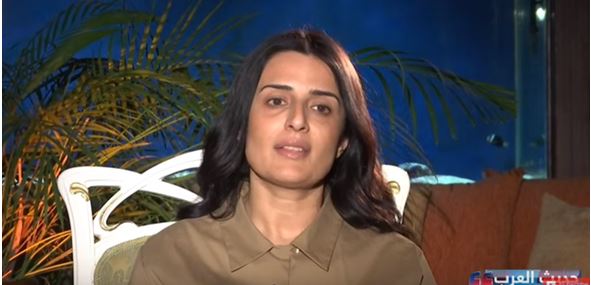Kuwaiti Columnist, Dr. Ibtihal Al-Khatib: State Schools In Arab Countries Should Abolish Religious Studies
MIMRI/February 2, 2016 Special Dispatch No.6289
Kuwaiti liberal and secular activist Dr. Ibtihal Al-Khatib, whose bold views have frequently drawn fire from both Sunnis and Shi’ites in the Arab world,[1] advocated, in a November 30, 2015 article, to abolishing religion studies in schools and to replace them with lessons on the history of religion or on ethics and human rights. Al-Khatib, a lecturer at Kuwait University and a columnist for the daily Al-Jarida, argued that the state has no right to impose the religion of a particular stream or sect on students from diverse backgrounds, and therefore proposed to confine religious studies to elective frameworks such as afternoon or weekend classes, so that parents who wish to can enroll their children in a religion class of their choosing. Al-Khatib also criticized the teaching methods prevalent in Arab and Muslim societies, which, she said, are based on rote learning, ambiguity and the reinforcement of taboos rather than on fostering creative thinking. She argued that this is the root of the problems in the Arab and Muslim world, in particular the internal schism, racism and extremism.
It should be noted that 10 days prior to the appearance of this article, Al-Khatib made similar comments on Dr. Sulaiman Al-Hattlan’s[2] show “Hadith Al-‘Arab” on Sky News Arabia, provoking many angry responses on social media.
Below are translated excerpts from Al-Khatib’s column:[3]
Curriculum Reform Will Not Help; All Religious Material Should Be Abolished
“I believe that nearly all our problems derive from the study methods and the quality of teaching to which our young children are exposed. I’m aware that this statement [seems] very simplistic and superficial, but in most cases the simplest and clearest [observations] in our lives are the most accurate.
“Our children grow up without much focus on critical thinking, because our curricula are based on rote learning rather than persuasion. They grow up relying almost exclusively on quoting and copying… because creativity and diligence are not part of the material or study method. They grow up evading many questions, resorting to ambiguity and avoiding many scientific and philosophical subjects, because the curricula surrounds [the students] with thousands of red lines, hobbles them with thousands of prohibitions and chains them with thousands of taboos.
“Many writers, myself included, have advocated amending the curricula, but I am not convinced that this will be enough to generate sufficient change. I called for such reform out of a belief that it was the minimum that had to be done, and might perhaps save what could [still] be saved and minimize the expressions of racism and extremism… [But] in my opinion, the real truth is that no modification [of the curriculum] will eradicate sectarianism or heal the [social] schism – for as long as the official curriculum presents religious material [from the perspective] of a particular school or sect, the schism will remain, and the rift and disagreement will be carved in stone, with the government’s official blessing.”
We Must ‘See Ourselves As We Really Are, Or Else Perish While Playing The Role Of Victim To An Empty Theater’
“When I noted, in an interview with Dr. Sulaiman Al-Hattlan, that the real solution is to abolish all religious materials, of any kind, in state schools, I received a harsh but expected response, which derives from the victim mentality that Muslims employ against anybody who disputes their opinion or criticizes them. [They see] any criticism as a plot against Muslims, any raising of questions as a plan to destroy the religion, and any innovative suggestion as Westernization intended to destroy the foundations of faith. Why? Perhaps this is due to the harsh historical conditions and to the restrictions that currently prevail, or to the nature of the Arab-Islamic mentality, or to external political [influences], or to internal regional disputes. [And] perhaps all these factors together, or several of them, feed this perpetual sense of discrimination and prompt Arabs and Muslims to play this tedious role [of victim], [which they] embody so well that they [end up] believing in it wholeheartedly. However, the world, and we ourselves, have grown sick of this endless role [of victim], which no longer elicits any sympathy or tears. So either we [start] seeing ourselves as we really are, or perish while continuing to play the role of victim to a theater without an audience.
“Yes, the solution is to abolish religion classes in schools during the morning and replace them with lessons on the history of religions, so students come to know the world’s diverse faiths, or else with lessons on human rights and ethics. This, providing that the state allows religious schools to offer afternoon or weekend classes, like the Sunday schools [operated] by the church, for those wishing to teach their children religion according to their [particular] sect and faith. Everyone has the right to provide his children with a religious education in a state-run school, but the state has no right to impose on all its citizens and residents… a single religious path from the perspective of one sect and one stream. The state should insist on equality for all in all the services it provides.
“I do not see how this proposal could [possibly] be regarded as an anti-religious plot, but, knowing the self-pitying Arab Islamic mentality, we understand why there are people who think that if you say ‘good morning’ instead of ‘al-salaam alaikum’ you are a Westernized [Muslim] plotting anti-religious schemes. This is how we always are, deliberately miserable.”
Endnotes:
[1] See for example MEMRI clip No. 1720, Kuwaiti Columnist Ibtihal Al-Khatib Criticizes Hizbullah and Declares: A Secular State Is the Only Way to Protect Religious Rights in the Arab World, of a March 14, 2008 interview with Al-Khatib, following which she received death threats. On November 7, 2015, it was reported that Al-Khatib had said that coeducation was preferable to segregated schools because it produced better results, developed the students’ personalities and made them more confident in relations with the opposite sex. Abohamdan.com, December 7, 2015.
[2] Dr. Sulaiman Al-Hattlan is a writer and Saudi media personality, and the former editor-in-chief of the American business magazine Forbes Arabia.
[3] Al-Jarida (Kuwait), November 30, 2015.



















